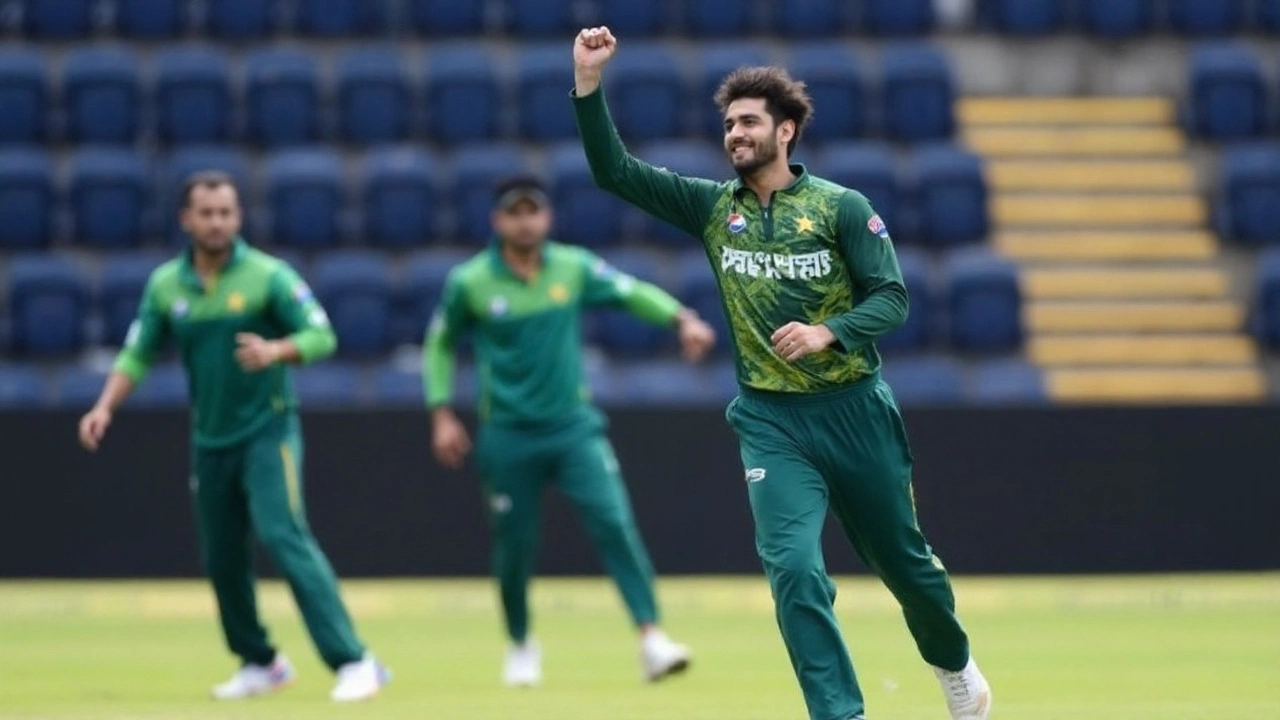India win with overs to spare, but Iyer wanted more
India got the job done against Pakistan in Dubai, and they did it with 45 balls in hand. Most teams would take that and move on. Not Shreyas Iyer. After a composed half-century and a match-defining stand with Virat Kohli, he walked into the press room and said what many players might think but rarely say out loud: India could have closed it out even earlier.
“We could have won a bit earlier,” he said after the ICC Champions Trophy 2025 group game on February 23. “With the way the wicket was playing, it felt like a more convincing win was on. The new ball came on nicely, and when it got older, scoring got harder. If we had pushed a bit more, we’d have finished sooner.”
That assessment wasn’t about showboating. It was about intent. India’s chase was controlled and calculated—safe, even—on a pitch that slowed up after the shine went off. Iyer admitted he needed time early on, especially against Abrar Ahmed’s leg-spin. “I was struggling a bit to manoeuvre the ball into the gaps. Abrar bowled brilliantly. It was important for me to play out that spell and still rotate strike.”
Iyer’s 56, stitched into a 114-run partnership with Kohli for the third wicket, broke the game open. Once the pair settled, the chase lost its bite. Wickets in hand meant India didn’t have to slog; they could tap and build. That’s why the 45 balls remaining matter here—India weren’t in a scramble. They were cruising. Iyer’s point was different: if the game felt under control that early, why not land the knockout punch sooner?
The context matters. India-Pakistan games bring a unique kind of heat—noise in the stands, pressure on the bench, and a thousand opinions on every ball. Even in Dubai, where the tournament set up neutral venues despite Pakistan being the host, the rivalry carried its full weight. “Any win against Pakistan is sweet,” Iyer said. “It’s always competitive, always a challenge, with a lot of external pressure.”
India’s bowling laid the platform. They tightened the screws in the middle overs, forcing Pakistan into a holding pattern. The pace attack hit hard lengths, the spinners took pace off, and the run rate sagged. That squeeze created a chase that didn’t demand heroics. It demanded clarity. And that’s where Iyer’s critique sits—he believes this team can be clinical in low-risk chases without waiting for the game to drift.
That mindset has been brewing across India’s white-ball cricket for a while: commit to intent, hold your shape, and don’t be afraid to finish teams early when the door opens. Iyer’s comments echo that shift—respect the conditions, yes; respect the opposition, yes; but keep looking for the extra gear.
What his comments say about India’s approach and the campaign
Iyer’s confidence comes from form and role clarity. Across the Champions Trophy, he became India’s metronome in the middle order, topping the tournament charts with 243 runs in five matches. He hit back-to-back fifties against Pakistan and New Zealand in the group stage, managing slow surfaces by playing late, using the crease, and trusting gaps rather than power. In Dubai’s abrasive conditions, that’s a premium skill.
He also understands how chases evolve on two-paced pitches. Early on, with a firm seam and a hard ball, strokes flow. Once the lacquer fades, the ball grips, and even good shots don’t pierce infielders as easily. That’s why teams either front-load their scoring or shore up the back end with wickets in hand. India chose the second path against Pakistan. Iyer just wondered if, with the partnership in control, they could have toggled back to the first.
There’s another thread in his remarks: India’s bowlers allowed the batters to dictate the tempo. When your attack crushes the middle phase, it simplifies the chase. The batters are free to select their moments rather than manufacture them. That luxury showed in Dubai. It wasn’t a batting lineup scraping to survive; it was one deciding how quickly to end the contest.
Still, it takes craft to look unhurried on pitches that won’t reward brute force. Iyer admitted early difficulty against Abrar, who hit good lengths and varied his pace. Playing out that spell without jamming the brakes was the trick. Rotate, wait, then cash in when a seamer misses. That is the template India leaned on throughout the tournament on sluggish tracks: hold nerve, deny momentum, win the transition overs.
The Kohli-Iyer partnership underlined roles. Kohli absorbed pressure, picked off the easy runs, and kept lanes open. Iyer targeted pockets, trusted singles, and went hard only when the bowlers lost shape. It wasn’t flashy, but it broke Pakistan’s plans. Once the asking rate dipped, risks weren’t needed. That’s the paradox Iyer flagged: because the plan worked, the ambition to finish faster never kicked in.
His reference to a “convincing win” wasn’t about optics. It was about building a habit. The best white-ball teams don’t just win; they manage margins. Finishing early saves energy, protects net run rate, and sends messages for the next game. It’s not arrogance—it’s strategy. And it’s a mindset worth repeating because India’s calendar now demands sustained sharpness across formats and venues.
Beyond this one night in Dubai, the bigger picture favors Iyer. He had come into the Champions Trophy needing rhythm and responsibility. He left as the tournament’s leading scorer, with runs that weren’t padded—they came in pressure games, on surfaces that punished impatience. He also showed he could change gears: start carefully, then widen the scoring. For a middle-order anchor who often walks in during turbulence, that balance matters.
Beating Pakistan on neutral turf also feeds into India’s larger narrative in ICC events. The rivalry is thick with storylines, but the blueprint here was simple: bowlers take control in the middle, batters respect the pitch, partnerships break the game. Add in the cool-headed chase, and the gap between winning and dominating becomes a question of intent more than ability.
It helped that the dressing room backed a measured plan. With dew uncertain and grip increasing as the ball aged, batters didn’t chase wow shots. They trusted attrition. From the dugout, you could see the communication lines open—batting coach to the bench, batters to each other, signals about pace off and field placements. It wasn’t a night for fireworks. It was a night for control.
What sticks, though, is Iyer’s honesty. Most players cushion their words after high-profile wins, especially against Pakistan. He didn’t. He credited the bowlers for setting it up, praised the opposition’s key spells, and then challenged his own side to be sharper. That’s not nitpicking. That’s competitive instinct, the kind that separates a good campaign from a great one.
India’s run through the Champions Trophy reinforced that edge. On slow pitches, with patience at a premium, they found a scoring method that didn’t depend on slog overs. They trusted partnerships rather than cameos, they squeezed with the ball rather than hunted late wickets, and when the time came, they closed. Dubai suited that discipline, and the team leaned into it.
For Iyer personally, this rivalry game will read well on the resume. Fifty-six under pressure, a hundred-plus stand with Kohli, and a message that the group can push further. It adds up to leadership without the armband. And for a player often judged on tempo and intent, taking ownership of the tempo debate after a win speaks to where he is mentally.
There will be bigger tests and tougher surfaces. There will be days when the chase won’t allow for neat margins or reflective press conferences. But nights like this build a culture. Bowlers squeeze, batters partner, and when the finish line is visible, someone decides to sprint. Against Pakistan in Dubai, India jogged across. Iyer simply believes they had the legs to sprint.

